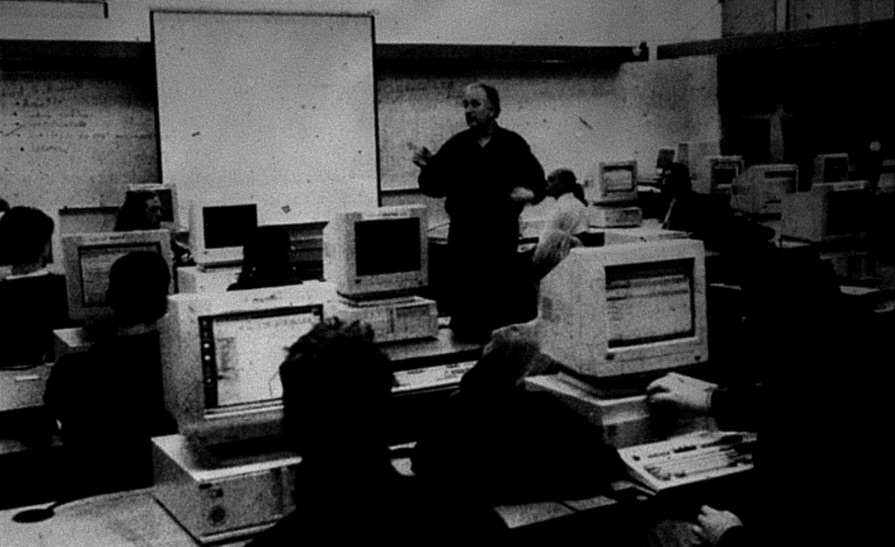UVic faces funding crunch: Increase in students and freeze on tuition puts quality at risk, administrators warn: [Final Edition]
Danard, Susan. Times - Colonist; Victoria, B.C. [Victoria, B.C]27 Jan 2000: C1 / FRONT.
Students' quality of education at the University of Victoria is in danger due to a funding shortfall, warn UVic administrators.
The university has had to make cuts to departments for six years in a row and could face more cuts this spring. The provincial government's policy of increasing student spaces at universities while freezing tuition has led to a funding crunch, said Penny Codding, vice-president academic and provost.
"We're beginning to feel that the quality of what we do here is in danger," she said.
While the B.C. government has increased access to post-secondary education, "we're now at a point where we might find students asking `access to what?"'
Since 1993-94, UVic enrollment has increased by close to 17 per cent to about 13,900 full-time equivalent students.
When the enrollment growth and inflation are factored in, the university has had to make due with a revenue decrease of $1,110 per student -- the equivalent of a 14-per-cent cut.
The shortfall has led to larger class sizes, wait lists for some courses, aging equipment and fewer library resources, Codding said. UVic's library, for example, cancelled 150 journal subscriptions last year.
In social sciences, students face delays in graduating because they can't get into required courses, said John Schofield, dean of social sciences.
The engineering faculty, which has seen an extraordinary enrollment increase of 40 per cent in the past five years, has had to cut laboratory time for students. Harried professors have less time for research and less time to help students.
"We're worried if there are any more budget cuts, the quality is really going to slip.... I don't think (the students) get as much attention as individuals as they did five years ago," said Michael Miller, dean of engineering. "My assessment is we're right at the edge."
Ensuring more students get a university or college education has been a major commitment by the NDP, which has frozen tuition since 1996. B.C. has the second lowest tuition fees in Canada, after Quebec.
And despite cuts in federal transfers for post-secondary education, B.C. has increased funding to universities and colleges by nearly $300 million over the last eight years.
But UVic administrators say much of that funding increase has gone toward creating new student spaces -- 16,000 additional spaces since 1996 -- and funding for new universities, including the Technical University of B.C. and Royal Roads University.
UVic stops short of demanding the province lift its tuition freeze, but says if the freeze stays, the university will need a larger provincial operating grant.
"Whether or not there is a tuition freeze in the province of British Columbia is a matter of public policy, which the government has to decide," Codding said. "We're saying to provide a high quality of education in the province of British Columbia, we need the same resources that other universities in the country have."
In a recent report submitted to the province, the University Presidents' Council, which represents B.C.'s six universities, argues that when compared with 16 other Canadian universities, B.C. universities have a shortfall of 440 per student --- a total of 54 million.
The university presidents want a minimum five-per-cent increase in their operating grant.
Andrew Petter, a former UVic law professor, now the minister of advanced education, said he shares concern about education quality.
Petter is staying mum on whether universities will have to increase student spaces again this year, but is promising more overall funding for post-secondary education in the upcoming provincial budget. Lifting the tuition freeze, however, is not something the government is "actively considering.
"I think it's crazy for us to be contemplating making education more expensive and less accessible at the very time post-secondary education is becoming more basic," Petter said.
If B.C. universities feel they are under-funded compared with universities elsewhere, it's because federal cuts have led to the balkanization of the country with Alberta and Ontario opting for more elitist systems that charge prohibitive tuition, Petter said.
"If we could get the federal government to restore the funding that they took out of the system, we would not have to make those invidious choices between excellence on the one hand and access on the other," Petter added.
"Because my personal belief is a system cannot claim to be excellent if it doesn't provide opportunities for middle and lower income kids."
Illustration

- gorman3.jpg (110.11 KiB) Viewed 65562 times
(courtesy of uvic library)
Photo: Ray Smith, Times Colonist / Bill Gorman instructs a computer science course in the Engineering Lab Wing at UVic. Administrators say government policies of freezing tuition and increasing enrollment are squeezing system. ;